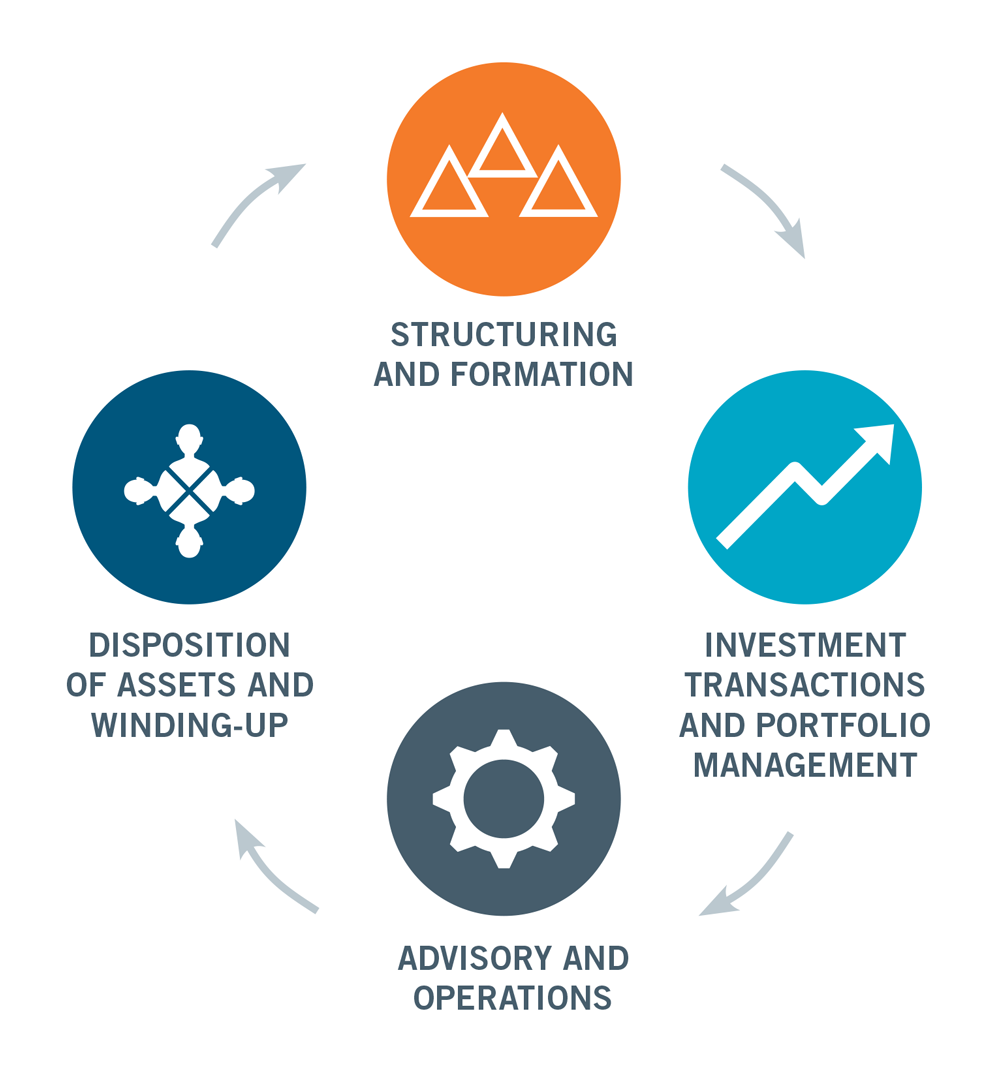
Private Equity
The global Private Equity practice comprises an integrated network of lawyers spanning Asia, Australia, Europe, and the United States. Our lawyers are positioned in the world’s leading financial centers—from New York and London to Luxembourg and Hong Kong—and in dynamic, rapidly growing technology and development centers, including Austin, Boston, Charlotte, Melbourne, Palo Alto, Paris, Pittsburgh, Research Triangle Park, San Francisco, and Seattle.
Our Private Equity lawyers advise fund sponsors and investors across all asset classes, including private equity, real estate, venture capital, hedge, credit, and infrastructure, on the full spectrum of issues faced across the entire lifecycle of a private equity fund.
Our cradle-to-grave approach gives us a unique understanding of all facets of a fund’s evolution.

We couple our global, lifecycle perspective with deep industry and sector-specific experience across many of the key industries in which today’s private funds most actively invest. This allows us to leverage our Private Equity lawyers with practitioners who focus on transactions, regulatory matters, and operations in distinct industries. We are steadfastly committed to staying on top of market trends and being continually cognizant of emerging nuances and developments.
The group’s breadth of global experience across sectors and asset classes, as well as its sophisticated knowledge of all aspects of fund formation, transactions, and operations, allows us to see issues before they arise and to provide holistic, efficient, and practical advice to our clients—to the funds themselves, management companies, portfolio companies, and to fund investors.
Chambers and Partners
Ranked by Chambers USA for Corporate/M&A & Private Equity in Pennsylvania: Pittsburgh & Surrounds, 2025
Ranked by Chambers USA for Corporate/M&A & Private Equity in Illinois, 2024
Ranked by Chambers USA for Corporate/M&A & Private Equity in Pennsylvania: Pittsburgh & Surrounds, 2024
Legal 500
Ranked by The Legal 500 United States for Private equity buyouts: middle-market (Up to $500m), 2024
Thought Leadership
The year 2025 saw significant regulatory activity in the realm of digital assets. The US Congress and financial regulators took steps to create and implement a clear legal framework to facilitate financial transactions using digital assets, and they will continue to do so in 2026.
Artificial intelligence regulation and litigation are set to take center stage in 2026, as new laws, guidance, and enforcement priorities are introduced at the federal and state levels.
In this article, Dr. Jan Boeing and Arnaud Dobelle outline the key milestones of the new regulatory framework, its interplay with financial sector rules such as DORA and PSD2, and what the upcoming Digital Omnibus proposal means for organisations deploying AI in Europe.
The One Big Beautiful Bill Act makes major changes to the Internal Revenue Code’s clean energy tax provisions, particularly to the provisions that were extended, expanded, and established as part of the 2022 Inflation Reduction Act.


 Fund Formation
Fund Formation
 Global Advisory
Global Advisory
 Investment Transactions
Investment Transactions
 Limited Partners
Limited Partners